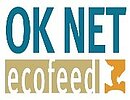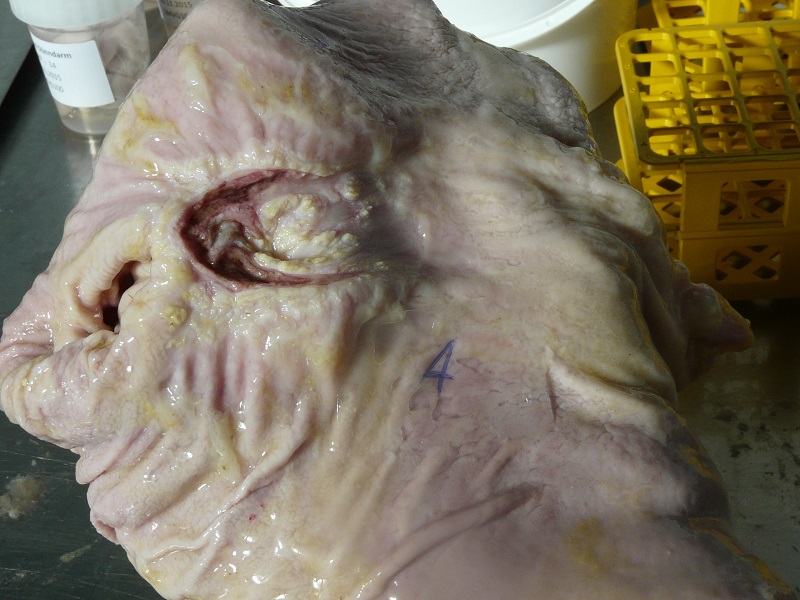Feeding grass silage to fattening pigs (OK-Net Ecofeed Practice Abstract)
Problem
Current production systems compromise pig health and welfare through a lack of structural feed components, which is associated with the development of gastric ulcers.
Solution
Feeding a diet which includes roughage, like grass silage, increases pig gut health.
Benefits
A reduction in gastric ulcers leads to increased animal welfare. Additionally, roughage, such as grass silage, may satisfy the pigs’ need for rooting and lead to a reduction in tail biting. Furthermore, the pigs are occupied with feeding for longer periods of time, which leads to a reduction in boredom. As grass silage has a good nutritional value, it is an ideal supplement to concentrate feed.
Applicability box
Geographical coverage
In all countries
Application time
Any time
Required time
Time needed to feed pigs
Period of impact
Immediate Impact
Equipment
No special machinery needed
Best in
Fattening Pigs
Practical Recommendations
- Provide fattening pigs with roughage on a daily basis (minimum 100-300 grams per pig every day)
- Grass silage is an ideal roughage: it is very attractive for the pigs due to its taste and consistency. Besides grass silage, grass, hay, and other types of silage have comparable effects on health and welfare.
- To avoid feed waste and to provide good access, place feed in racks at an optimal height.
- Place racks away from areas where pigs rest in order to avoid disturbances.
Further information
Video- The video “Feeding pigs: effect of silage“ is available at the Organic Farm Knowledge platform.
Reading
- Früh, Barbara and Mirjam Holinger (2019) Organic Pig Farming: Key Characteristics, Opportunities, Advantages and Challenges. In: Improving Organic Animal Farming. Burleigh Dodds Series in Agricultural Science, pp. 287–306., doi:10.19103/as.2017.0028.16
- Holinger, Mirjam et al. (2018) Long-Term Effects of Castration, Chronic Intermittent Social Stress, Provision of Grass Silage and Their Interactions on Performance and Meat and Adipose Tissue Properties in Growing-Finishing Pigs. In: Meat Science, vol. 145, 2018, pp. 40–50., doi:10.1016/j.meatsci.2018.05.018
- Holinger, Mirjam et al. (2018) Grass Silage for Growing-Finishing Pigs in Addition to Straw Bedding: Effects on Behaviour and Gastric Health. In: Livestock Science, vol. 218, 2018, pp. 50–57., doi:10.1016/j.livsci.2018.10.012
- Research Institute of Organic Agriculture – FiBL (2019) Feeding Pigs: Effect of Silage. Video. Research Institute of Organic Agriculture (FiBL), Frick. Available at organic-farmknowledge.org/tool/35301
- Holinger, Mirjam et al. (2015) Improving Heal and Welfare of Pigs - A Handbook for Organic Pig Farmers. Research Institute of Organic Agriculture - FiBL, 2015, organic-farmknowledge.org/tool/35307
- Further documents can be found on the Organic Farm Knowledge website.
About this practice abstract and OK-Net EcoFeed
Publishers:Research Institute of Organic Agriculture (FiBL),
CH5070Frick,
Phone +41 62 865 72 72,
info.suisse@fibl.org,
www.fibl.orgIFOAM Organics Europe,
BE1000Brussels,
Phone +32 2 280 12 23,
www.organicseurope.bio,
www.organicseurope.bio
Contact: mirjam.holinger@fibl.org
Permalink: https://organic-farmknowledge.org/tool/36454
https://orgprints.org/view/projects/OKNetEcoFeed.html
This practice abstract was elaborated in the Organic Knowledge Network on Monogastric Animal Feed project. The project is running from January 2018 to December 2020. The overall aim of OKNet EcoFeed is to help farmers, breeders and the organic feed processing industry in achieving the goal of 100% use of organic and regional feed for monogastrics.
Project website: https://ok-net-ecofeed.eu/
IFOAM Organics Europe (project coordinator), BE; Aarhus University (ICROFS), DK; Organic Research Centre (ORC), UK; Institut Technique de l'Agriculture Biologique (ITAB), FR; Research Institute of Organic Agriculture (FiBL), CH; Bioland, DE; Associazione Italiana perl'Agricoltura Biologica (AIAB), IT; Donau Soja DS, AT; Swedish University of Agricultural Sciences, SE; ECOVALIA, ES; Soil Association, UK.



This project has received funding from the European Union’s Horizon 2020 research and innovation programme under grant agreement No 773911. This communication only reflects the author’s view. The Research Executive Agency is not responsible for any use that may be made of the information provided. The authors and editors do not assume responsibility or liability for any possible factual inaccuracies or damage resulting from the application of the recommendations in this practice abstract

